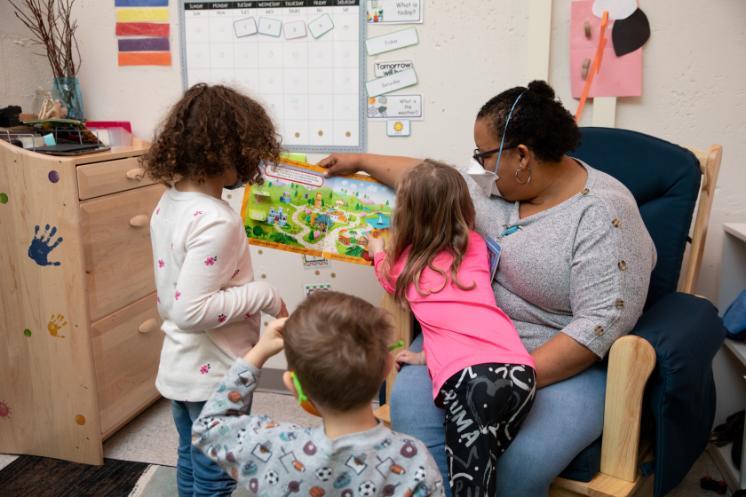
Our Approach
The Reggio Emilia Philosophy

The Andy Taylor Center is inspired by the Reggio Emilia approach to learning. Our philosophy is based on the constructivist theory of child development, which ascertains that a child’s knowledge and understanding of the world is constructed through their experiences in their environment, as well as through their interactions with others.
The Reggio Emilia Approach
The Reggio Emilia approach to education was developed after World War II by psychologist Loris Malaguzzi and parents in the villages surrounding Reggio Emilia, Italy. Following the war, the citizens in the region sought to rebuild their community through an investment in early childhood education. A network of municipal preschools and infant/toddler centers was established to meet this need. The Reggio Emilia educational system is widely recognized for innovation within the field of education as a whole.
Defining principles of the Reggio Emilia approach include:
- An image of the child as a naturally curious, creative, and competent individual capable of building and acquiring knowledge of their world
- An emergent curriculum that builds upon the interests of the children, inspiring deep thinking and exploration
- Caring, responsive teachers who partner with children in their explorations while listening, observing, and documenting their learning
- The role of the preschool environment as a “third teacher”, consisting of elements that promote inquiry, interaction, and imagination
- Studio spaces that invite children to explore topics of interest in multiple contexts
- Use of documentation and authentic assessment to assess children’s growth and progress within the program
- A school culture that values families and fosters meaningful relationships between home and school
The Reggio Emilia approach has been successfully implemented in a wide variety of public and private settings throughout the world.
Incorporation of Learning Standards
Our program utilizes Virginia’s Unified Early Learning and Development Standards (ELDS) published by the Virginia Department of Education. These standards provide all early childhood providers (i.e., parents/families, caregivers, educators, and program leaders) with a resource for understanding what children should know and be able to do as they grow and change from birth until they enter kindergarten. These standards are aligned directly with the kindergarten Standards of Learning, ensuring that preschoolers enter kindergarten with all of the knowledge, concepts, and skills they will need to be successful in elementary school.
Hours
Monday - Friday 7:00 a.m.- 5:30 p.m.
